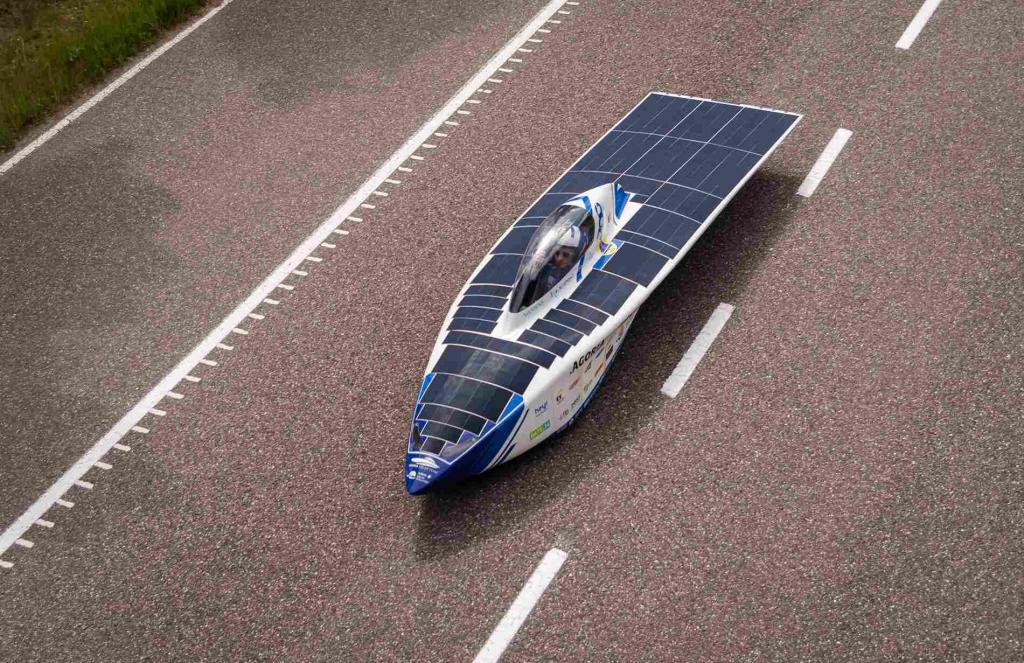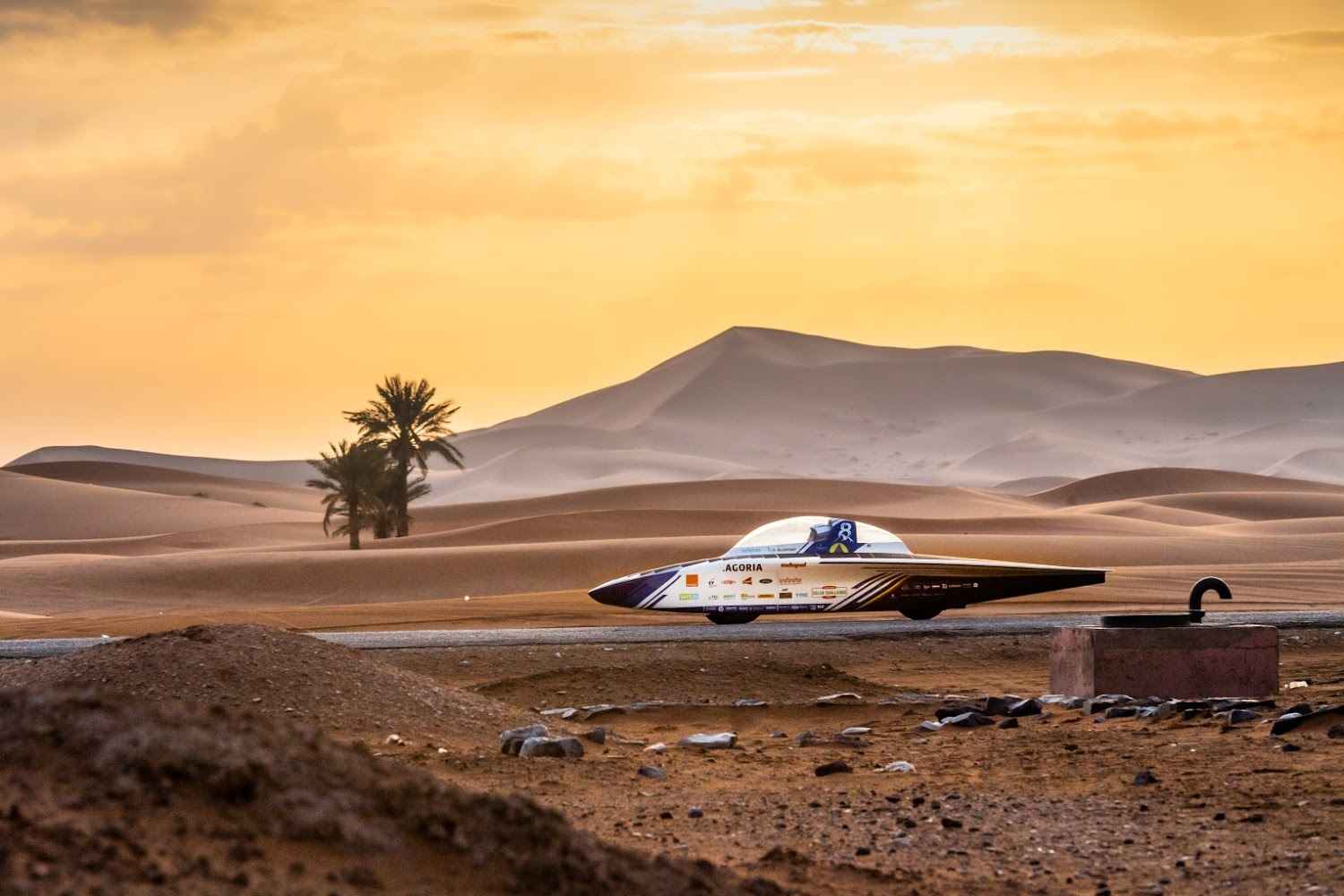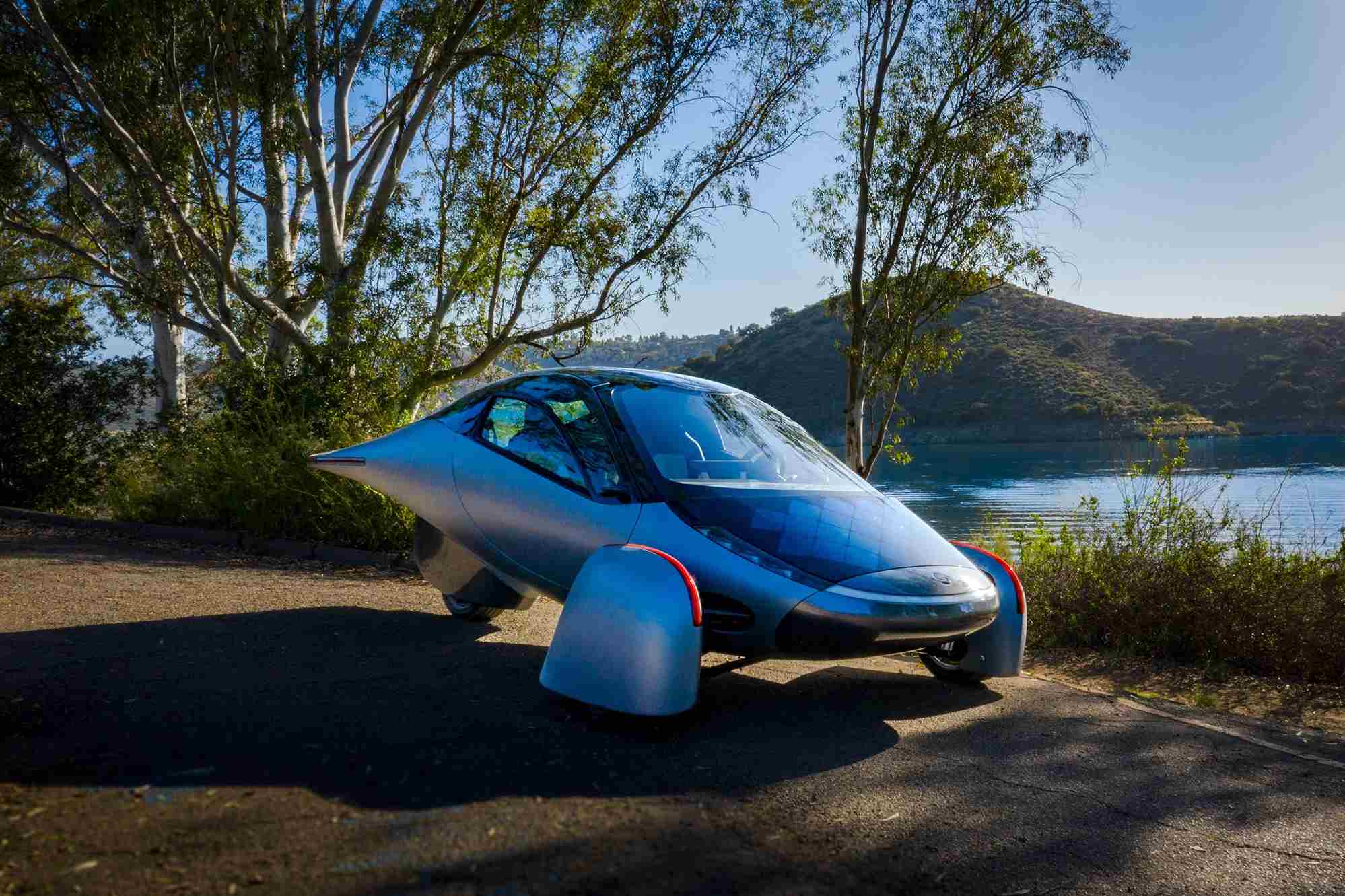Thessaloniki gets ready for its metro launch in November
The underground rapid transit lines have been under construction for almost two decades due to various project delays
 TheMayor.EU logo
TheMayor.EU logo 
The BluePoint Atlas was able to beat the record with an hour and a half to spare , Source: Agoria Solar Team
Solar racing is a bizarre field of competing university teams, which can give us a glimpse into the possible and exciting future of zero-emissions mobility
Yesterday, the Belgian Agoria Solar Team broke the world record for most kilometres driven with a solar car in 12 hours. The team, made up of students from the Catholic University of Leuven (KU Leuven), managed to cover 1,051 kilometres with their BluePoint Atlas model, greatly outperforming the previous record of 924 kilometres, held by the Dutch Solar Team from Delft since 2020.
Despite solar race cars being quite experimental, both in their design and their engineering, they represent some of the most innovative concepts for solar-powered vehicles. And while the technology is still not ready to make fully solar-powered vehicles for the commercial market, solar racing can give a glimpse into the technologies engineers are using to push the field forward.
BluePoint Atlas, the car that ran the record, is the 9th design the Agora Solar Team have put out since they were created 17 years ago, an, so far it shows a lot of promise in the realm of solar-powered race cars. In 2021, the car took the team to their first rally in Africa, with the Moroccan 2,500-kilometre Solar Challenge. There BluePoint Atlas took home the silver.

The BluePoint Atlas in Morrocco, 2021, Source: Agoria Solar Team
This was the Agoria Solar Team's first ever attempt at the kilometres driven in 12 hours record and they chose the Ford track at Lommel, Belgium. BluePoint Atlas started its run at 7:31, according to a statement by the team. After 305 kilometres, they were still on schedule, but clouds were starting to build up, which could have caused trouble, as the car is powered directly by the sun.
With 5 hours and 45 minutes to go, the solar car had already driven 549 kilometres. After 700 kilometres, they had a flat tire and the team decided to accelerate to 95 kilometres per hour to make up the lost time. With an hour and a half to go, the team passed the 924-kilometre mark and the new record was a fact. At the end of their run, the BluePoint Atlas had covered 1,051 kilometres, putting it well ahead of the previous record.
The first solar-powered car prototype was developed by an engineer in General Motors William G. Cobb, back in 1955, however, it was only 38 centimetres long. It featured 12 selenium photovoltaic cells and a big promise for the future – cars only powered by sunlight.
The field gradually developed over the following years and in 1985, the world saw the first solar race, the Tour de Sol in Switzerland, which sparked an influx of similar events. These, however, did not feature commercially viable car models, instead of focusing on hyper-efficient, aerodynamic models, driven by university teams.
The solar races, in the past and nowadays, have been aimed at promoting cutting-edge designs that sometimes even lack batteries, that harness the power from the sun directly. They foster idea-driven engineering innovation that could be adopted by the commercial market.
And in recent years, this has been happening more and more, with various companies launching car models that feature some form of solar-driven rechargeability. However, the technological dream of having an electric car that does not need a power station and instead gets all it needs from the sun is still away off. This is because the surface area that a car offers for photovoltaic cells is just not enough to meet energy demands. But it can make electric drives more efficient.
One example is the futuristic, slick, three-wheel design by Aptera Motors, which is set to hit production lines this year. According to company sources, the solar array of the car can provide an additional 26 to 64 km driving range per day, which would make charging the car at EV stations a rarity.
 The Aptera Motors solar car is one of the most unique designs,
The Aptera Motors solar car is one of the most unique designs,
taking advantage of the technology,
Source: Aptera Motors on Facebook

The underground rapid transit lines have been under construction for almost two decades due to various project delays

Now you can get your wine in Talence by paying directly in Bitcoin

That’s because the state has to spend money on updating the railway infrastructure rather than subsidizing the cost of the popular pass

Rethinking renewable energy sources for the urban landscape

The examples, compiled by Beyond Fossil Fuels, can inform and inspire communities and entrepreneurs that still feel trepidation at the prospect of energy transition

Now you can get your wine in Talence by paying directly in Bitcoin

The 10th European Conference on Sustainable Cities and Towns (ESCT) sets the stage for stronger cooperation between the EU, national and local level to fast track Europe's transition to climate neutrality.

At least, that’s the promise made by the mayor of Paris, Anne Hidalgo

The underground rapid transit lines have been under construction for almost two decades due to various project delays

At least, that’s the promise made by the mayor of Paris, Anne Hidalgo

Hostal de Pinós is located in the geographical centre of the autonomous region

Despite its church-y name, the district has long been known as the hangout spot for the artsy crowds

Urban dwellers across the EU are having a say in making their surroundings friendlier to people and the environment.

Forests in the EU can help green the European construction industry and bolster a continent-wide push for architectural improvements.

Apply by 10 November and do your part for the transformation of European public spaces

An interview with the Mayor of a Polish city that seeks to reinvent itself

An interview with the newly elected ICLEI President and Mayor of Malmö

A conversation with the Mayor of Lisbon about the spirit and dimensions of innovation present in the Portuguese capital














